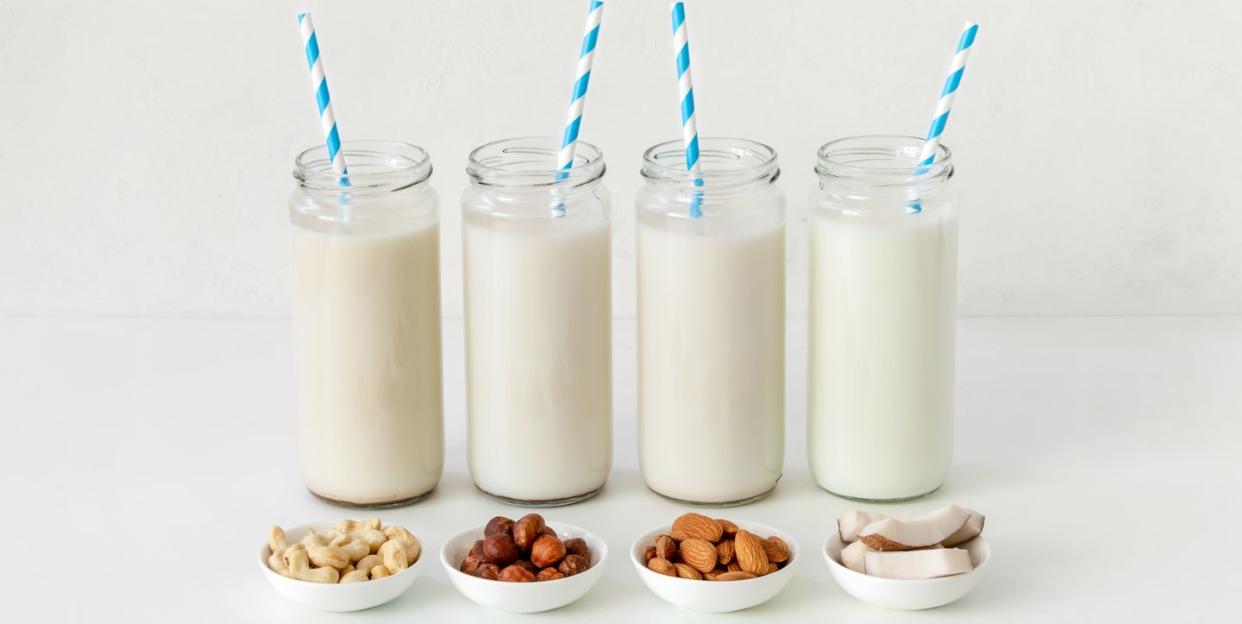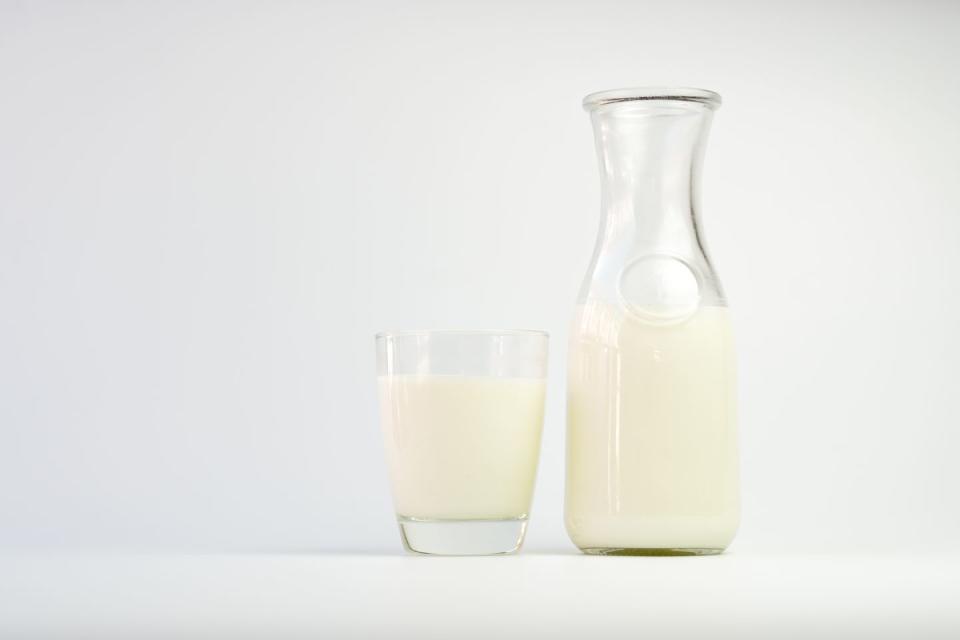This is the healthiest non-dairy milk

From oat to cashew (who knew you could milk a nut?) to soya, the choice on the non-dairy milk market these days is vast. So, we asked expert consultant dietician, Sophie Medlin, founder of City Dieticians, to give her verdict on which is the healthiest and most protein-packed non-dairy milk out there. Your morning coffee will never be the same again...
What is the healthiest non-dairy milk on the market?
Seeing as typically we drink milk to get a hit of vitamin D and calcium, it's important to choose one which contains the highest levels of those nutrients. The winner, according to Sophie? Soya milks, specifically those from Alpro, or any milks in general that have been fortified with calcium and vitamin B12.
"Overall, soya milk is best for getting your daily dose of essential amino acids and typically milk-related nutrients, plus it contains the most protein," she says. "There's also a fantastic coconut-based one on the market called KoKo Super, which has nine added vitamins and minerals."

But what about the rest of milks on offer? "Oat and rice milks are carbohydrates, and nut milks contain very little in terms of useful nutrients (but do have slightly more fat in them than their carbohydrate based counterparts)," Sophie explains.
"The key, really, is to find a plant milk that is appropriately fortified, particularly if you're following a completely vegan diet. In my experience, most people choose their plant milk based on taste and what they want to use it for, rather than the health or environmental aspects." So it's okay to mix and match, if you want soya milk in your tea but prefer almond in your porridge, as long as your diet contains everything you need elsewhere.
Is it bad to quit drinking dairy milk entirely?
Not if you make sure to get plenty of Vitamin D and calcium from other sources, says Sophie. On a plant based diet, fortified margarines and irradiated mushrooms are good for the former, while tofu, soya beans, fish (where you eat the bones, like sardines) and broccoli are great for the latter.
"It's important to remember that before the age of 30, your bones gain strength by readily absorbing dietary calcium, after that, they lose density every day that you don’t get enough in your diet." Milk labels should be clearly marked with what additional nutrients the product contains, so keep your eyes peeled for those added extras. "Shake the carton to distribute the added nutrients before you pour, too," advises Sophie.
Right, so there you have it. If you're after a vitamin and protein hit, go soya or fortified, but if (like me) you can't quit oat milk lattes, that's fine too – just get your calcium and B vitamins elsewhere. Et voila!
Sophie Medlin is the founder of City Dieticians and also works as a product development consultant for the manufacture of vitamins and probiotics.
Like this article? Sign up to our newsletter to get more articles like this delivered straight to your inbox.
You Might Also Like

